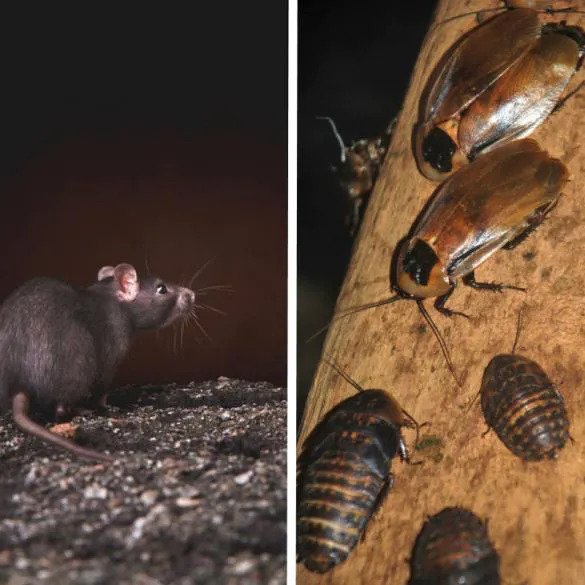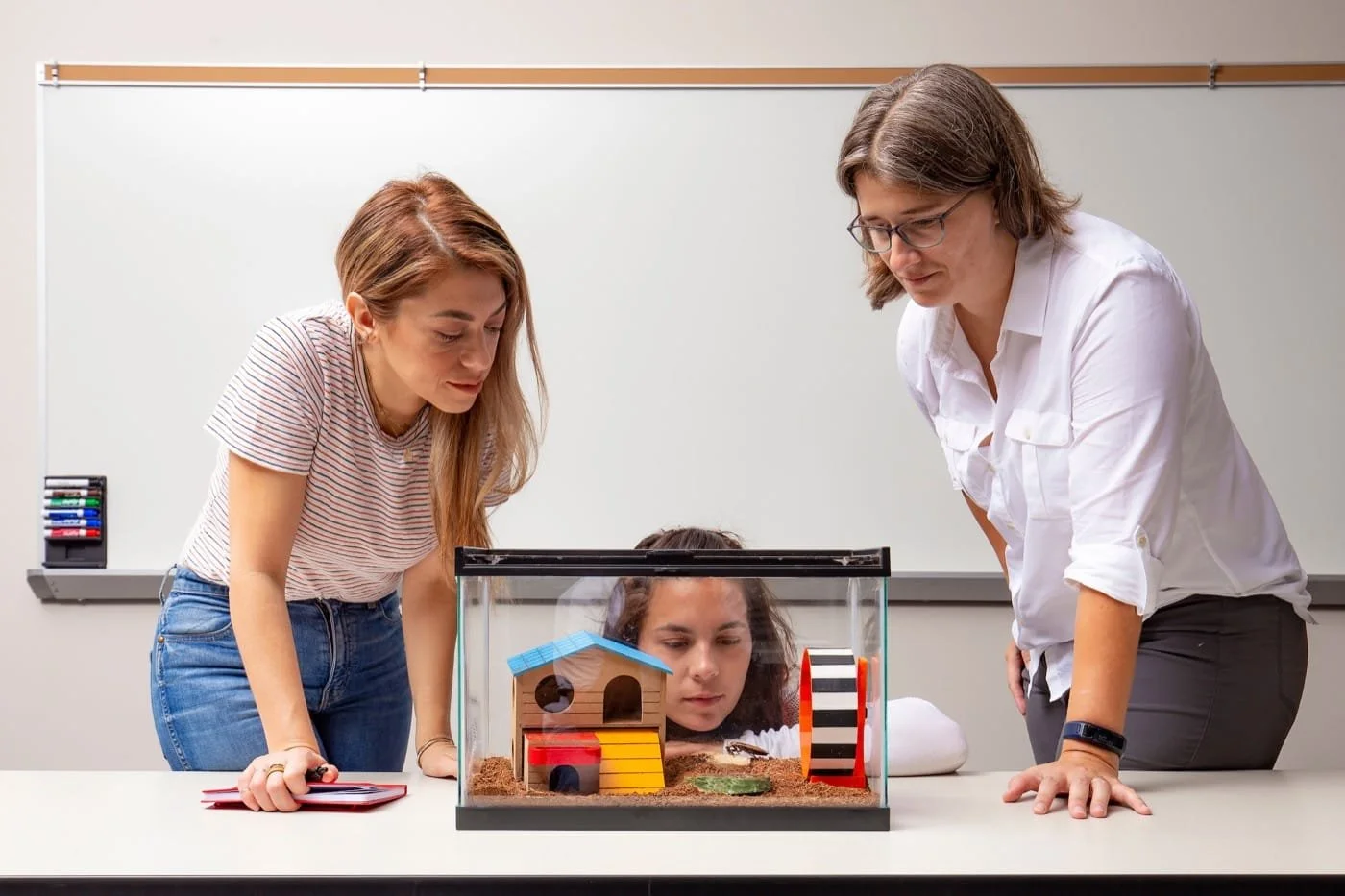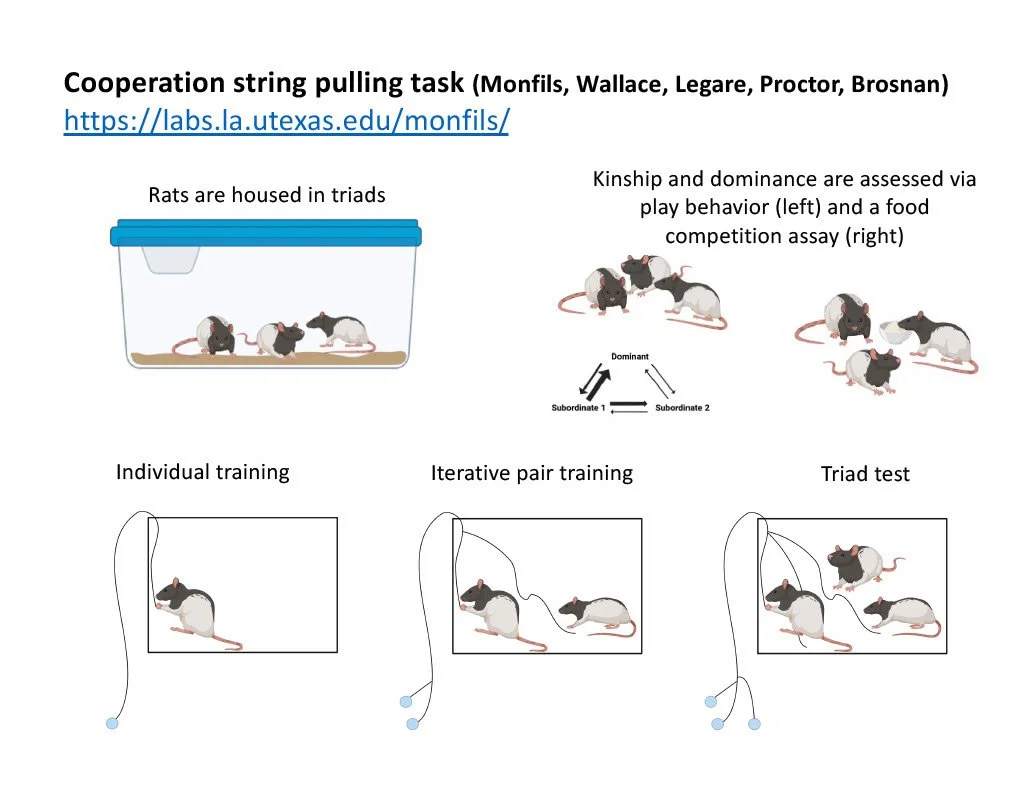Collective Intelligence in Roaches and Rats
Does collective action require a large brain? Can collective behavior and the foundations of cumulative culture emerge from the independent action of individuals?
Despite radically smaller and, in some cases, differently organized brains, species like cockroaches and rats flourish, potentially even using sophisticated collective behaviors to shape their environments to their advantage. While rats are well known to evince strong social bonding and even have been shown to display altruism, there are only preliminary indications that roaches have similarly sociable lives. A new project from a team directed by Sarah Brosnan at Georgia State University and co-directed by Cristine H. Legare at The University of Texas at Austin will explore collective action and cultural transmission in cockroaches and rats.
The team will test whether roaches and rats can use capacities that are hallmarks of cumulative culture, coordination and cultural transmission to optimize their outcomes.
The research aims to provide novel insight into how individual decisions influence collective behaviors that provide the foundation for cumulative culture – coordination, transmission, and copying – and the degree to which the social dynamics influences these behaviors.
Research Teams
Florida Tech Roach Lab
Dr. Darby Proctor conducts roach-related research for The Collective Intelligence in Rats and Roaches project. An Associate Professor of Psychology at Florida Tech, Dr. Proctor primarily investigates decision making in non-human primates at Florida Tech’s Animal Research Center, which she also co-directs. Additionally, Dr. Proctor runs roachlab.org, a behavior and cognition lab designed to provide animal research experiences for undergraduate students at Florida Tech and beyond. Dr. Proctor utilizes the Roach Lab network—including their community of discoid cockroaches (Blaberus discoidalis)— to investigate social behaviors related to cumulative culture in roaches.
Monfils Memory Lab
Dr. Marie-H. Monfils leads rodent-related research for this project. Her Memory Lab is housed in the Psychology department at UT Austin. In addition to her work on memory and fear attenuation, Dr. Monfils uses rat studies to investigate the factors that underlie affiliative kinship and the social transmission of information. Her research for this project employs a cooperative string pulling paradigm to study coordinated and imitative behaviors as they relate to rodent social dynamics.
Collaborators
-
Distinguished University Professor of Psychology, Philosophy, and Neuroscience, Co-director of Language Research Center, Georgia State University
-
Professor of Psychology, Director of Center for Applied Cognitive Science, University of Texas at Austin
-
Professor of Psychology, Associate Chair for Research and Operations, University of Texas at Austin
-
Associate Professor of Psychology, Co-Director of Animal Research Center and Roach Lab, Director of Animal Behavior Concentration in Psychology, Florida Institute of Technology
-
Assistant Professor in Developmental Science, Department of Psychology, Durham University
-
Assistant Director of the Lester E. Fisher Center for the Study and Conservation of Apes, Lincoln Park Zoo, Chicago, IL
Funding
This project is funded by Templeton World Charity Foundation under the Diverse Intelligences initiative. Learn more about the initiative HERE→



